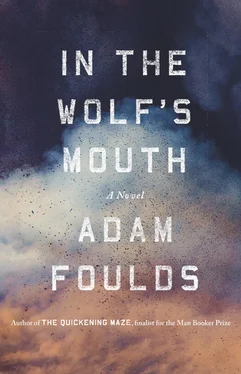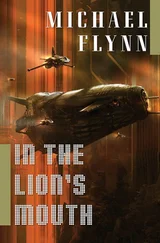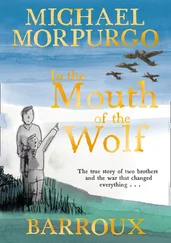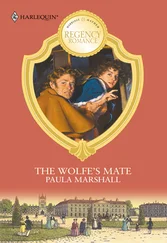Today, the witch didn’t take out cards or a diagram or use any stones. She didn’t make a prayer. She said simply, ‘Your husband will be put in his coffin twice. I know this for sure. The first time he will not be dead. He will climb out of that coffin alive.’ She stopped, sitting back and pursing her lips in the way that indicated her revelation was over. Teresa said, ‘Thank you.’ Always such a tingling in the air in that room. You wouldn’t want the witch as an enemy. Teresa reached into her pocket, awkwardly holding her coffee cup, and, as she tried to pull out a coin, she dislodged one of Zuffo’s banknotes. It fell onto the dirt floor. She couldn’t pick it up and give the witch something smaller now, so she reached down and collected it and handed it over. The note had arrived and now it went. It had fallen out like that so it was obviously fated to happen.
Jaconi raised pleading hands. ‘Why me? Cirò, please.’
‘Because you saw me first. Friday night. I’ll be by old Luca’s place.’
‘But, Cirò, please.’
‘Nothing’s going to happen. Nothing’s going to happen to you. Friday at nine o’clock.’
Silvio couldn’t understand why Teresa was so angry with him, finding fault in every little thing he did. He whistled at the table and he shouldn’t whistle. Why didn’t he ever wear his good shirt? Her movements were quick and stabbing and clumsy. She burned herself. A red mark on her wrist the size of a coin that would turn brown and then a wrinkled silver. She blinked tears onto her round cheeks and swiped them away with her apron.
There was a knock at the door. Teresa said, ‘Who would come knocking at this time?’ She opened the door to the shopowner, Jaconi, who said, ‘Silvio, come with me. They’re giving out cigarettes at the town hall.’
‘Really?’
‘Yeah. Who knows why but they’re doing it. Look.’ He held up a new packet of Chesterfields. ‘I’ll show you.’
Mattia, the eldest boy, got up to go with them too but his mother stopped him. ‘Stay here. I don’t want you mixing with the foreigners.’
As Silvio walked out, he felt Teresa touch him on the shoulder. That was strange. He turned around, surprised, but the door was shutting.
‘Here, have one of these,’ Jaconi said. ‘I’ll get more.’
‘No, it’s all right.’
‘No, go on. Here.’ Jaconi took a cigarette out of the pack and handed it to Silvio who shrugged, put it betweens his lips, and waited while Jaconi lit a match. Silvio puffed the cigarette alight. Jaconi shook the match until the flame went out and tossed it away.
‘Nice, isn’t it?’
‘Sure.’ Silvio held the cigarette up and looked at it as he exhaled. ‘It’s good.’
They walked on. Before they got to the town hall, a voice called out to them. The man, who was leaning against a wall, pushed himself upright and said. ‘Good evening. I know you two. Jaconi, I saw you the other day. And … Silvio. Remember me?’
Jaconi shook the man’s hand. Silvio offered his. ‘You’re …’
‘I’m Cirò Albanese. Remember now?’
Cirò kept hold of his hand, wouldn’t let it go. ‘Thank you, Jaconi,’ he said.
Jaconi didn’t say anything. He dropped his head and walked quickly away, back the way they’d come.
‘Cirò, please …’ Silvio tried to pull his hand away.
‘Sshh. Quiet now, Silvio. You know what’s going to happen.’
‘Please.’
‘Come on. Let’s not waste time.’ Cirò still had hold of his hand. He pulled Silvio and turned so that Silvio was in front of him. ‘Just walk straight ahead. I’ll tell you where to go. Don’t whimper like that. I hate that sound. Pray if you want to but don’t moan like an old woman.’
Cirò directed Silvio down and out of the town, out into the fields.
‘The Germans were all around here,’ he told Silvio. ‘And the Fascists. We killed them all. I came back with the Americans.’
They crossed one field and carried on down a little way into the valley. ‘Here.’
Silvio swallowed twice and said, ‘What are you going to do?’
‘Don’t worry. It’ll be fine. It’ll be very quick.’
‘Tell my mother …’
‘I know. I’ll tell her. There are mines in front of you, about twenty yards away. Walk around and find one. Accidents happen. Go on. Walk in a straight line away and then back. I’ve got a gun so don’t run. It’ll be better than the other way, believe me. Quicker.’
‘Please, Cirò.’
‘Go on.’
Silvio started walking, his hands outspread on either side of him as if to catch hold of something for balance. ‘Please, God,’ he said. ‘Please, God.’
He walked for thirty metres. Cirò whistled and shouted, ‘Turn left.’ Silvio did as he was told. ‘Now walk back towards me.’
Nothing.
Cirò directed him again to the left and sent him away and then back. The walk seemed to take hours. Still nothing. He did it again. When Silvio reached him this time, Cirò was laughing. ‘You’re the luckiest man in the world. How are you not dead yet? We’ll have to do something else.’
Cirò walked up to Silvio and put his hands around Silvio’s throat. The man’s neck was slippery with sweat. Cirò could smell shit in his trousers. He started to squeeze. Silvio caught hold of his wrists, his eyes wide with surprise. ‘Shoot,’ he said.
‘I know. But it’s better this way. Ow. Stop pulling at my hands. It won’t help.’
Silvio stared at Cirò, his eyes thickening and fading. He stumbled, his legs giving way. Cirò kept up the pressure despite a cramp in his right hand. It was a good thing he was just strangling him until he passed out, not to death. Silvio became soft and heavy in his grip and Cirò let him drop to the ground. Silvio lay face down, one hand by his head, the other arm underneath his body. Cirò took a grenade from his jacket pocket. He pulled the pin, placed it gently on the back of Silvio’s neck, and started to run.
It seemed to take ages. He was a long way back up the hill before he saw light flash on the ground in front of him and his own thrown shadow and heard the explosion. He turned around as earth and small stones pattered back down. In the darkness he saw a hole. He couldn’t see Silvio.
The Civilian Affairs Office that Will, Samuels and others were now stationed at had charge of three towns, Montebianco, Portella Corvi and Sant’Attilio, in the mountains south-west of Palermo at the far western edge of British territory. There weren’t many villages or smaller settlements in the hills. The peasants didn’t seem to like them. Instead, those that worked walked long miles out to the fields and the vines and came back again each night, clustering in their stony habitations like bats in caves. Most didn’t work. The rest of the men and boys skulked in the towns. The women went unseen. When Will did spot them, they were receding into the front doors of their homes or they were between those doors and the sculpted fragrant darkness of the churches. One of the first things Will did, in Grand Tour fashion, was to enter the big church on the square in Sant’Attilio. Inside, headscarfed women were on their knees or hunched in the pews. Rosaries clicked, circling slowly in their fingers. Will looked at the building. After the spacious, mathematical elegance of the mosques, the church looked cluttered, superstitious, Hindu. There were dolls everywhere, in every recess. Doves and clouds, lambs, gold, and the executed Christ, starved and agonised, pouring down his blood. Dark and ugly, full of magic and death, a religion for the ignorant.
One of the first things they needed to do was to get the sappers in and the minefields cleared. Only yesterday one poor peasant had blown himself up just outside Sant’Attilio. But the whole island was mined. It might be days before they arrived.
Читать дальше












